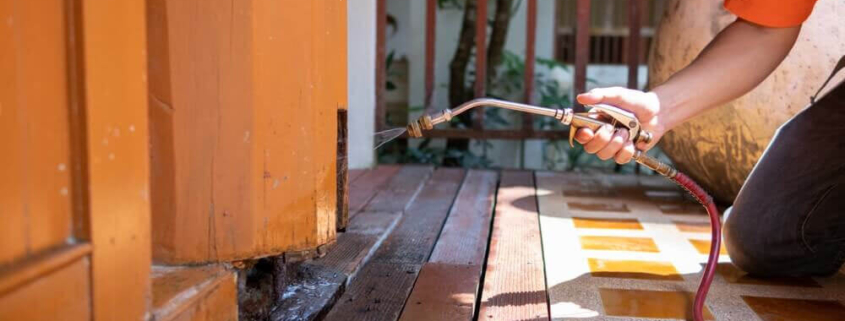Termite Damage in Landlord-Tenant Disputes: Who’s Responsible?
Termite damage is a common issue that can cause significant problems in rental properties. When it comes to determining responsibility for addressing termite damage in a landlord-tenant dispute, things can get complicated. Both parties have their own role to play when it comes to keeping properties termite-free, and it’s important to understand your rights and obligations.
Has termite damage left you with destroyed property? We can help. Call Reeves & Mestayer at 228-374-5151 to set up a consultation with our team right away.
Understanding Termite Damage
Termite damage, a serious issue in many Mississippi homes, leads to the destruction of materials such as wood, insulation, and even paper products. These tiny pests are notorious for their ability to silently consume and weaken structural components, leading to extensive and expensive repairs.
Beyond the visible damage, the presence of termites can seriously compromise the safety and integrity of a building, putting tenants at risk. Recognizing the signs of termite damage early is critical for prompt intervention and mitigation. This includes identifying telltale indicators such as hollowed-out wood, visible tunnels in walls, or the presence of termite wings. Early detection paired with swift action can significantly reduce the impact of termite damage on a property.
The Legal Regulations on Termite Damage in Rentals
Navigating the complexities of legal regulations regarding termite damage in rental properties requires a thorough understanding of Mississippi state laws and your own lease. These regulations stipulate that landlords must ensure their properties are habitable and free from infestations, including termites.
Tenants, on the other hand, need to be equally informed about their rights and responsibilities when it comes to termite damage. While the primary burden of pest control and property maintenance typically falls on the landlord, tenants generally have obligations too, such as reporting issues in a timely manner and not contributing to conditions that could encourage termite infestations.
Landlord Responsibilities: Maintenance and Repairs
The duty of landlords to keep their properties habitable includes the crucial task of addressing and preventing termite damage. Landlords must initiate and maintain ongoing termite inspections. When signs of termites are identified, landlords must act decisively, arranging for professional extermination and repair services. Such actions are not only integral to preserving the structural integrity and safety of the property but also to fulfilling their legal obligations towards their tenants.
Moreover, by investing in routine maintenance and prompt responses to termite issues, landlords can avoid more significant financial and legal issues down the line.
Tenant Responsibilities: Reporting and Mitigation
Tenants hold specific responsibilities in mitigating and reporting termite issues. It is crucial for tenants to alert their landlords at the earliest signs of termite presence or damage. This enables swift action, potentially curbing the spread and severity of the infestation. Furthermore, tenants contribute to preventative measures by sustaining an environment that deters termite activity. This includes avoiding the storage of wood or paper products directly on the ground and maintaining the property’s cleanliness.
Cooperation during extermination and repair processes is also crucial; under state law, landlords and treatment professionals can enter the property with sufficient notice. Tenants should do everything they can to allow timely treatment and provide easy access to affected areas. Denying entry to pest treatment professionals or refusing to cooperate with inspection requests may cause infestations to worsen.
Resolving Disputes Over Termite Damage
When termite damage leads to disagreements between landlords and tenants over who bears the responsibility for repairs and extermination costs, both parties should commit to working together toward a fair outcome. This is why it’s so important to begin this process with a thorough review of both state laws and your individual lease. In many cases, the questions you have are directly addressed in the lease, and adhering to these terms can help you avoid time-consuming and expensive legal action that may leave you unable to renew a lease.
Start Your Termite Litigation Case with Reeves & Mestayer
If you’ve suffered loss of property due to a termite infestation, you could have a valid legal claim against the liable property. We can help you understand your next steps and explore your legal options. Set up a consultation with our team immediately by calling us at 228-374-5151 or reaching out to us online.







